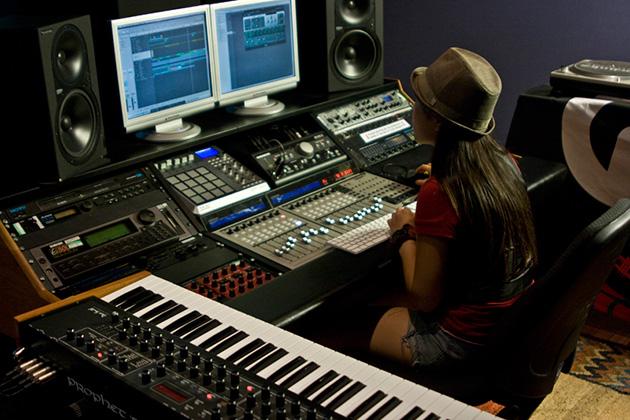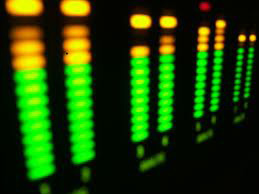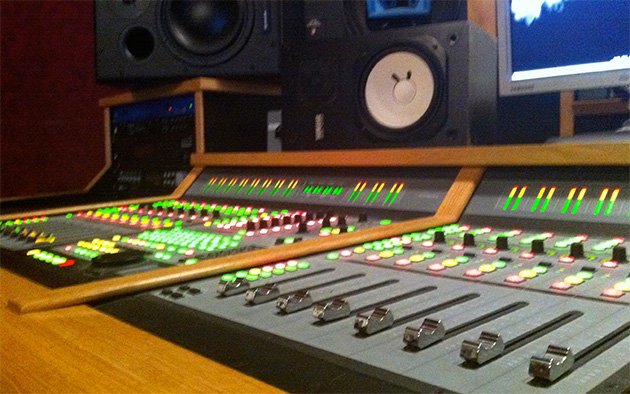In the celebrity branding industry, ghosting is a given. Consumers don’t expect The Jersey Shore’s Nicole “Snooki” Polizzi to have written her novels (although it’s pretty clear her experiences influenced A Shore Thing), nor is it assumed Rihanna, in creating her poorly-reviewed-but-successful River Island collection, sat down to put together ideas and cut patterns. On the other hand, these two (as well as the plethora of names behind the ridiculously lucrative celebrity fragrance market) didn’t make their fame on being a writer or fashion designer, respectively, so ghosting claims are, really, no big deal.
On the other hand, if it were suddenly revealed Rihanna didn’t sing on any of her albums or high number of chart-topping singles, it would be. After all, even though critics go after her limited-range voice, her sound is unmistakable and sells an obscene amount tracks.
But while ghosting charges leveled against Rihanna would be a pop music community scandal, similar accusations get swept under the rug in the electronic dance music community. At the 2013 Winter Music Conference, Bimbo Jones’ Lee Dagger, duo Sick Individuals, and Disfunktion’s Mike Tielemans touched on this hush-hush phenomenon during panel “Re: Crafted, Re: Modeled & Re: Mixed” but quickly went onto another subject. But just as the recent EDM surge in the U.S. has turned DJs into rock stars, not on the basis of their actual DJing skills but on tracks that make it onto the radio and sell on Beatport, rumors about which big-name producers have ghost DJs began to circulate.

A TranceAddict.com forum post attempted to list the artists who do this. The most notable, out of those listed include Tiesto, Dave Dresden of Gabriel & Dresden, Paul Oakenfold (who, apparently, can’t even write a melody), Sasha, and Paul Van Dyk. But because ghost producing hasn’t been confirmed for any of these performers, the statements don’t go beyond rumors.
Interviews, however, give a more solid idea about who might not be doing all their own production. To ClaytonPerry.com, Benny Benassi was more candid about who does what in the Benassi Bros. At one point, he calls cousin Alle “my producer and studio partner” and later goes onto explain that, while he has a background as a house DJ, Alle is a classically-trained musician.
But, while Benny Benassi furtively comes clean, another DJ revealed he provides the technical manpower behind David Guetta’s tracks. In Ready2Move.be, Joachim Garraud admitted the supposed sound behind “Where Them Girls At?” directly comes from him. While the interview is in French, the translated version of Garraud’s statement about Guetta is: “David is not a musician,
How Does Ghost Production Work?
In a sense, ghost DJing is a loose concept, encompassing the engineering and composition a DJ’s track may have to full-on creation. Any “help” a producer may receive, then, qualifies as ghosting. “Whether it’s an engineer whiz kid who can finish off a good idea, a sound designer who makes incredible synth lines, or a full-fledged ghost producer there are a ton of people involved,” Alex Vickers explained in Magnetic in May 2012. “There’s a huge amount of man hours that go into a professional sounding song, there’s so many facets of production that it’s borderline impossible to be a master of everything. There’s the sound design, melody writing, drum programming, recording vocals, arrangement and any other lose ends. And there’s the mixing and mastering stage, which is just as much an art form as the production itself.”
But a tweak or refinement here and there seems reasonable for a DJ/producer on the road for 80 percent of the year. On the other hand, if a producer gets known for a particular sound (say, the cacophonic wub-wub-wub of any Skrillex track), they should be the ones creating it – not to do so is disingenuous, particularly during a period of EDM in which a hit single gets DJing talent noticed or takes his career up to a higher level.
 Yet, more is often asked through advertisements for ghost producers. Take this Freelancer.com bid, which requests the ghost producer be able to do everything from composition to mastering of a complextro track. The bidder, to give the ghost producer an idea of what’s wanted, stated he’ll provide examples.
Yet, more is often asked through advertisements for ghost producers. Take this Freelancer.com bid, which requests the ghost producer be able to do everything from composition to mastering of a complextro track. The bidder, to give the ghost producer an idea of what’s wanted, stated he’ll provide examples.
Beyond the single advertisements, covert ghost producing services are out there. Rebelution Studios is just one of those – and, according to its Facebook updates, does it very successfully. While its presence is but a whisper on the internet (28 Facebook “likes” as of April 7, 2013), its status updates paint a different picture: “3 tracks in the beatport top 100!” (October 18, 2012), “we are proud to welcome a BIG NAME DJ as our new customer” (May 24), “even Grammy nominated DJs/Artists (Best Remix) have ghost producers….” (April 10), “Yeah! Our production hits the US dance chart” (March 27).
Who could be behind these tracks? Rebelution’s producers, who seem to get targeted on Soundcloud, likely have to keep quiet, but the company’s “likes” include Afrojack, Axwell, and Hardwell.
If Rebelution’s social media presence is shady, GetGrooves247 is more forthright, posting demos up to Facebook, as well as YouTube and Soundcloud. Its services as listed as composition, writing, and production for nearly all EDM subgenres, as well as some commercial music.
In some cases, those who start out ghost producing end up having real DJing or producing careers. That’s how Hypercolour’s Alex Jones got his start, he revealed in Mixmag in October 2012. “I think it’s a fucking joke,” he said. “I have done it in the past because I needed money. More often than not the client will ask you to ‘make a bomb’ – a silly phrase – and to ‘do it in one day for £150/£200 (also it would be really good if we could get a second one done in our time together)’. Firstly, if I could write a ‘bomb’ in a day, I wouldn’t be sitting here with you. Secondly, I’d never say I’d written a ‘bomb’ because, when you use the term ‘bomb’ you actually mean ‘get me to the top of the Beatport charts so I can fly around the world, see my picture in magazines and generally raise my social status’. Sadly, DJing and more recently ‘producing’ has become just another fashion accessory. You’ll generally find people like this high- fiving other people more famous than themselves in DJ booths and making damn sure they’re getting their photo taken alongside them.”
So, Why Do DJs Do It?
Three forces seem to keep ghost production going. One, the state of electronic music makes being a producer a necessity. Touched on at WMC, a DJ needs to put out that hit to get the prime gigs – few can truly subsist as a DJ alone, unless he or she has decades of clout. Even then, if the Oakenfold and Tiesto rumors are to be believed, those skills aren’t enough, so a hit single keeps a career relevant.
 But what happens when you’re a great DJ but supposedly a mediocre or technically un-savvy producer? Unless you have the connections (like Benny Benassi’s cousin), you seek out a service like Rebelution, which promises 100-percent discreet, pro-quality tracks. With a single, now you have a chance to compete and do your craft in the venues you want.
But what happens when you’re a great DJ but supposedly a mediocre or technically un-savvy producer? Unless you have the connections (like Benny Benassi’s cousin), you seek out a service like Rebelution, which promises 100-percent discreet, pro-quality tracks. With a single, now you have a chance to compete and do your craft in the venues you want.
So, aside from production being a necessary stepping stone to a DJing career, the demand for big-name DJs puts them on the road for a good deal of the year. Although some claim to produce on the road, as all you supposedly need is a laptop and a good pair of headphones, the time doing and traveling between gigs is months away from the studio – and, essentially, away from time creating quality music and career-maintaining hits.
Social media’s hyper speed additionally influences the pace of EDM, which, really, translates to a need for producers to pump out the hits at an even greater pace than before.
Based on these factors (and the fact EDM’s growth doesn’t seem to be stopping any time soon), it’s pretty clear why ghost producing is a negative mark on the industry. Yet, with sources claiming this practice dates back to the early days of electronica and with the demand for original productions (and high ranks on Beatport, iTunes, and Billboard charts) continuing to grow and to be the force keeping DJing relevant, it’s likely to turn into an industry norm, like synching during a live performance.




